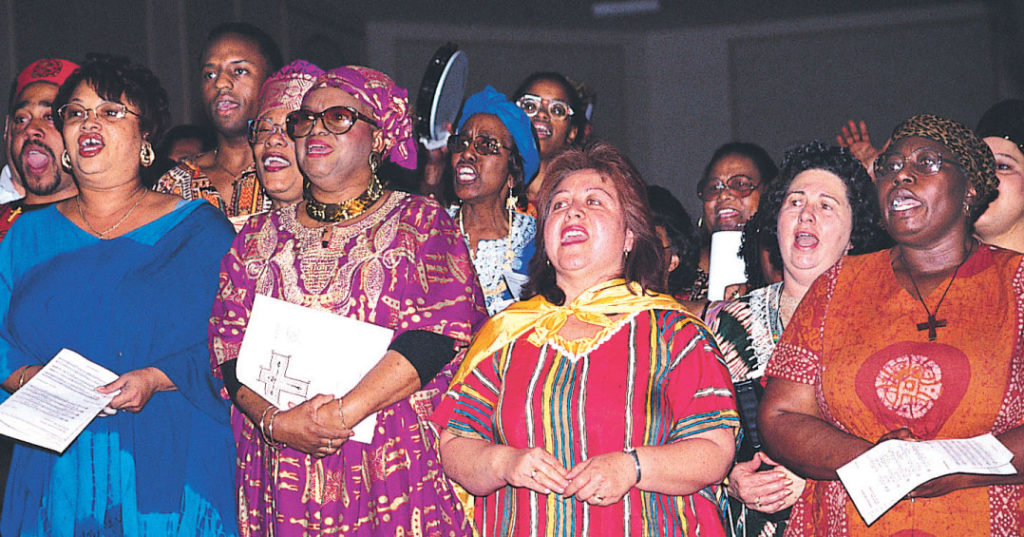
Theologically Sunday’s feast celebrates the risen Jesus’ return to God — the culmination of the paschal mystery and promise of our own life with God. In Sunday’s first reading Jesus says farewell to his disciples, is lifted up, and a cloud takes him from sight. In the gospel Jesus is taken up and sits down at the right hand of God.
Up is where God is in the ancient world. Up still represents the highest position, the top rung, the penthouse suite, the upper echelon, the seat of power. We lobby for public policies that lift people out of poverty. Upward mobility expresses power and achievement. The ladder of success goes up.
The view of Earth from space, however, has pushed us to revise our images of the heavens above as God’s home and throne. As astronauts have circled Earth, they see the thin blue line of atmosphere that shelters us from the limitless space. The cosmos appears a vast, dark unknown rather than God’s paradise in the clouds as it does from Earth.
Indeed rocket liftoffs are not the only way we free ourselves of gravity and all that weighs us down. Lifting up can also express movement into solidarity with others. We lift up people and their needs in prayer. We identify with their needs.
Singing is an intimate act of sharing emotion and meaning. We each give our voices to a single melody or a great chord.
Singing a song such as “Lift Ev’ry Voice and Sing,” the black national anthem, expresses the shared commitment and unity its words describe.
Lift ev’ry voice and sing,
till earth and heaven ring,
ring with the harmonies of liberty;
let our rejoicing rise
high as the listening skies,
let it resound
loud as the rolling sea.
Sing a song full of the faith
that the dark past has taught us,
sing a song full of the hope
that the present has bought us;
facing the rising sun
of our new day begun,
let us march on till victory is won.
— James Weldon Johnson
- What is an experience that has lifted you up?
